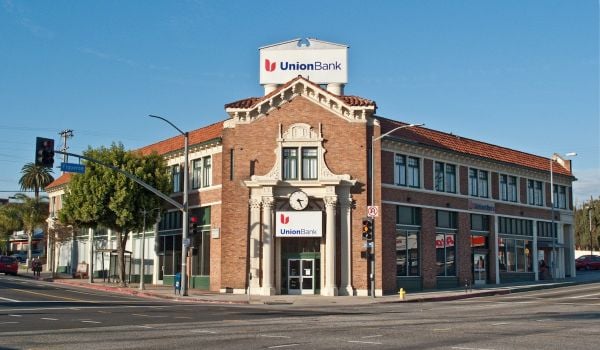Born and raised in Cleveland, Diane Linston knew she wanted to work in fashion since she was 14 years old. “It started in home economics class in junior high school,” she remembers. “In one part you learn how to cook. For me, that didn’t go well. But my teacher, when she showed me how to take fabric and turn it into this or that? My teacher saw that I had a passion. She put a lot of effort into helping me.”
Linston had found her calling. She nurtured it as best she could, through high school and starting college at Virginia Marti College of Art and Design, in nearby Lakewood, Ohio. Two kids and 11 years later, she finished her degree, in 1998. Within a year, she founded her own label, Styles of Imagination, which still does all its own design and manufacturing in Maple Heights, a Cleveland suburb. You can shop for her work online or in 21 independent retailers in Ohio, Michigan, Pennsylvania, Virginia, Louisiana, Atlanta or Chicago.
Six years ago this week, Linston was going into brain surgery for a rare neurological condition. Two years ago, a surprise blood clot nearly took her life. So Linston estimates 2016 was her best year yet, thanks in part to a huge order she got this past summer. To fill it, she got a working capital loan from the newly created Capital Access Fund of Greater Cleveland.
“If I had not gotten this loan, I probably would not have been able to meet the demand for this order,” she says. “We bought fabric, got people to help, got order out to client in a timely manner and we already paid back the loan.”
The Capital Access Fund of Greater Cleveland is a partnership between the National Urban League’s Urban Empowerment Fund (NUL-UEF), Morgan Stanley, the National Development Council (NDC), Urban League of Greater Cleveland (ULGC), and Cuyahoga County. The $8 million fund plans to make around 50 loans over the next three years, as well as offer pre- and post-loan counseling to ensure the success of its small business borrowers. Borrowers must come through ULGC’s Entrepreneurship Center, and will get additional technical assistance from NDC. The capital for the initiative comes from Morgan Stanley and Cuyahoga County.
As a local chapter of the historically black Urban League network, founded over a century ago to support former slaves and children of slaves migrating out of the Jim Crow-era South, ULGC has been providing training and technical assistance primarily to black entrepreneurs like Linston in the Cleveland area since 2004.
“[We] serve about 700 businesses a year,” says Michael Obi, who manages ULGC’s entrepreneurship programs. Collectively, he estimates they help small business owners create about $25 million in economic impact a year. They started their entrepreneurship work because of massive unemployment and lack of opportunity in Cleveland’s black communities after factory closures in the 1990s and early 2000s.
But it’s still not enough. Too many small business owners, especially in black communities, aren’t getting the capital they need to grow and create jobs in and for those communities.
“Home value has not rebounded in black communities. It’s still about half what it was like before the Great Recession,” Obi says. “So a lot of minority small business owners, when they go to banks to get a loan, their net worth in many cases is still negative.”
Obi says ULGC has tried to bring some microlenders to town, but even they still use traditional underwriting — net worth, collateral, credit scores — to determine who gets money. “If you don’t look favorable on those, you’re out,” says Obi. “There are more creative ways to make loans that have the same [level of risk] but don’t have the traditional underwriting criteria.”
The National Urban League brought up the idea with potential partners at Morgan Stanley, who connected ULGC with NDC. “It has been a great marriage, if you will,” Obi says. “We’re on the loan committee, and helped craft the loan policy. It doesn’t mean that we make reckless loans. It means that we structure loans to fit the needs of the clients and it also means we provide technical assistance to clients. We don’t just make a loan and walk away.”
NDC is a federally certified community development financial institution (CDFI) that works nationally to expand access to capital for affordable housing and economic development, including small business lending. (Since their founding in 1969, NDC has loaned more than $210 million to over 528 small businesses, creating and retaining more than 13,000 permanent jobs.)
“Normally we don’t work with the Urban League,” says Bob Davenport, president of NDC. “Cleveland is a true pilot for us.”
Besides creating at least 300 jobs, the goal for the Capital Access Fund of Greater Cleveland is to demonstrate that lending to small business owners with negative or low net worth or possibly suspect credit ratings can be just as successful as following traditional underwriting criteria. Some of these businesses, like Linston’s Styles of Imagination, have been around for years, but have been denied loans or encountered difficulty getting the capital they need right when they need it.
“It cut a lot of red tape. I just couldn’t believe, within a matter of a day, it was like you’re approved,” Linston says.
There’s no credit minimum for a loan from the fund, which is generally providing loans for up to $150,000, up to seven year terms, charging 4.5 percent interest and with interest-only payments for up to the first three years of the loan — giving time for a business to really use the cash to grow. Eight businesses, including Styles of Imagination, have already gotten a loan. Linston is currently applying for a second loan from the fund.
“We listen to stories,” says NDC’s Davenport. “We know people have all kinds of good reasons why they might end up having the credit scores they have.”
Obi insists they’re not cutting corners — whether it takes a day or a month, they won’t lend without seeing the same minimum level of documentation, including business tax returns, clearly documented positive cash flow, and other paperwork. If a business isn’t ready, they won’t say no, but they’ll work with them until they are.
“We tell them the brutal truth, that banks won’t often tell them, for the sake of being politically correct,” Obi says. “The goal here is for them to become bankable, to be ready for venture capital, for primetime.”
The Equity Factor is made possible with the support of the Surdna Foundation.

Oscar is Next City's senior economic justice correspondent. He previously served as Next City’s editor from 2018-2019, and was a Next City Equitable Cities Fellow from 2015-2016. Since 2011, Oscar has covered community development finance, community banking, impact investing, economic development, housing and more for media outlets such as Shelterforce, B Magazine, Impact Alpha and Fast Company.
Follow Oscar .(JavaScript must be enabled to view this email address)

















